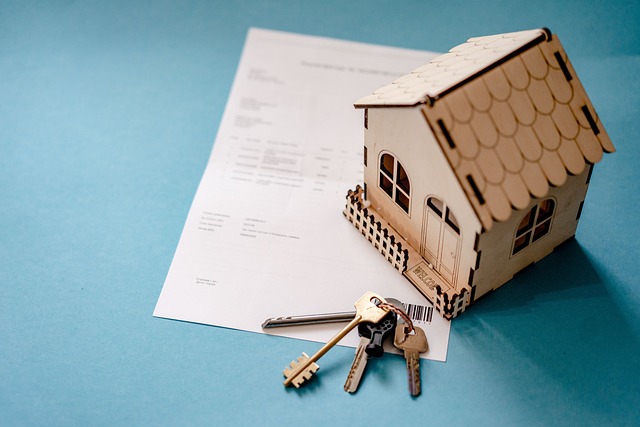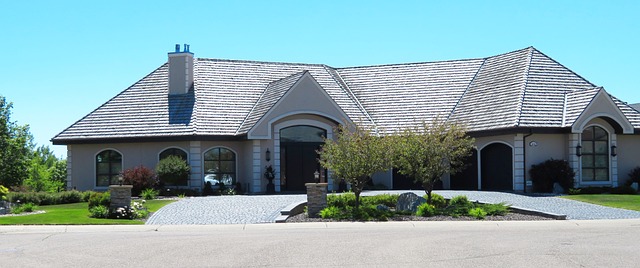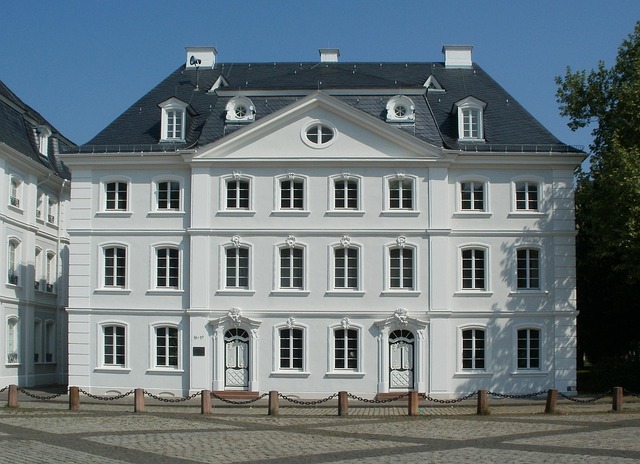2023 has seen a robust interest in Singapore's real estate market, particularly among those considering an Executive Condominium (EC) leasehold or a Freehold property. ECs are a cost-effective and centrally located option for middle-income families, offering a 99-year leasehold tenure with the potential for substantial capital appreciation. They come with financing benefits like the CPF Housing Grant (CHG) for eligible applicants, making them an attractive proposition for first-time homeowners or investors. Freehold properties, on the other hand, provide permanent land ownership and may appeal to those looking for a long-term investment or seeking to establish a legacy in Singapore. Buyers must consider factors such as personal financial goals, loan eligibility under the Total Debt Servicing Ratio (TDSR) and Mortgage Service Ratio (MSR), and interest rate options when deciding between these two housing types. Prospective buyers should carefully analyze the implications of leasehold versus freehold ownership, including long-term value, maintenance, and market trends, to make an informed decision that suits their needs within Singapore's diverse residential landscape.
In Singapore’s dynamic property landscape, discerning between Executive Condominium (EC) Leasehold and Freehold ownership presents a key decision for both investors and homeowners. This article delves into the distinctions and implications of these two tenure types, offering clarity on their value, resale potential, and financial considerations. From grasping the fundamentals of EC leasehold and freehold properties to understanding the nuanced differences in a comparative analysis, this guide equips you with the knowledge to make an informed choice. Additionally, we explore financing options, including the CPF Housing Grant and mortgage alternatives, paving the way for a clearer path to your ideal home. Whether you’re looking at short-term gains or long-term stability, understanding the EC leasehold vs freehold dichotomy is paramount in Singapore’s property market.
- Understanding the Basics of Executive Condominium (EC) Leasehold and Freehold Ownership in Singapore
- The Benefits and Considerations of EC Leasehold Properties
- A Comparative Analysis: The Differences Between EC Leasehold and Freehold Properties in Terms of Value, Resale Potential, and Loan Limits
- The Long-Term Implications of Choosing an EC Leasehold vs Freehold Property for Investors and Homeowners
- Financing Your EC Leasehold or Freehold Purchase: Navigating the CPF Housing Grant and Mortgage Options
Understanding the Basics of Executive Condominium (EC) Leasehold and Freehold Ownership in Singapore

In Singapore’s vibrant real estate landscape, the choice between an Executive Condominium (EC) and a Freehold property is a significant decision for homebuyers. ECs are a unique hybrid housing type designed to offer a mid-tier option for couples, with the option to transition from EC status to private condominium status after fulfilling certain criteria over time. Unlike traditional condominiums, ECs come with a leasehold tenure, meaning buyers acquire the right to occupy and use the property for a specified duration as stipulated in the lease agreement. As of this writing, the standard lease period for an EC is 99 years. This arrangement offers a balance between affordability and accessibility for aspiring homeowners who may not yet meet the income ceilings for public housing.
On the other hand, Freehold properties in Singapore offer perpetual land ownership, which can be particularly attractive to investors looking for long-term security or those preferring not to deal with lease renewal concerns. The distinction between Freehold and leasehold ownership is crucial as it affects property value over time; while Freehold properties may appreciate in value due to their permanence, leasehold properties’ value may diminish as the remaining lease shortens. Both ECs and Freehold homes are subject to the Singaporean government’s policies aimed at ensuring a stable housing market, which includes the Selective En Bloc Collective Sales (SEBLS) framework for ECs. Prospective buyers must consider their long-term objectives, financial planning, and personal preferences when choosing between an EC leasehold and a Freehold property, as both offer distinct advantages tailored to different needs and aspirations in Singapore’s diverse real estate market.
The Benefits and Considerations of EC Leasehold Properties

When considering a residential property within the Executive Condominium (EC) landscape in Singapore, discerning homebuyers often weigh the advantages of opting for leasehold properties. One of the primary benefits of an EC leasehold is its affordability compared to non-landed private properties. As these condominiums are designed for middle-income families, they offer a cost-effective entry point into property ownership, particularly for those who do not qualify for public housing due to income restrictions. Additionally, the 99-year lease tenure for ECs provides future resale value, as the market assesses the remaining lease when determining pricing. Owners can enjoy their home without the long-term financial burden of a freehold property while still benefiting from the appreciation potential of real estate.
Moreover, when it comes to considering the leasehold aspect of ECs, prospective owners should be aware that after the lease expires, the land reverts to the state. However, this is a consideration far into the future, with many enjoying their leasehold properties for generations. The management and maintenance of the condominium are handled by the Condominium’s Management Corporation Strata Title (MCST), ensuring that the property remains well-maintained throughout the lease period. With the strategic location and comprehensive facilities that ECs typically offer, residents can expect a comfortable lifestyle with the added benefit of potential capital appreciation over time. The decision to invest in an EC leasehold should be made with a clear understanding of one’s long-term living plans and the associated conditions of ownership as stipulated by the Singapore government.
A Comparative Analysis: The Differences Between EC Leasehold and Freehold Properties in Terms of Value, Resale Potential, and Loan Limits

In Singapore’s dynamic property market, discerning between EC leasehold and freehold properties is crucial for potential investors or homeowners. Executive Condominium (EC) leasehold options offer a balance between affordability and the benefits of condo living, typically with a lease term of 99 years. These properties are designed to cater to the middle-income group, allowing them to enjoy condo privileges at a more accessible price point. Over the years, ECs have proven to be a valuable asset, appreciating in value as they age and as the land becomes more scarce. Investors should consider how long the lease has left to determine the potential future value of an EC leasehold unit.
On the other hand, freehold properties in Singapore are rare and highly sought after, offering full ownership of the land and building for generations to come. This perpetual tenure can be a significant advantage for those looking for longevity and stability in their property investment. Freehold homes often command higher prices initially but tend to maintain or even increase their value over time, making them an attractive option for long-term capital appreciation. Resale potential for freehold properties is typically robust due to their enduring appeal, especially in prime districts and mature estates. When it comes to financing, EC leasehold buyers are subject to the Mortgage Servicing Ratio (MSR) cap which varies, while freehold property owners may have more flexible loan options available to them, depending on their financial profile. This distinction in loan limits is an important consideration for prospective buyers, influencing their borrowing capacity and long-term financial planning.
The Long-Term Implications of Choosing an EC Leasehold vs Freehold Property for Investors and Homeowners

When considering long-term property investment or homeownership in Singapore, discerning individuals often weigh the advantages of Executive Condominium (EC) leasehold versus freehold properties. An EC leasehold offers a unique proposition for both investors and homeowners. With a lease term typically spanning 99 years, ECs present an opportunity to enjoy condominium living within less restrictive pricing and size parameters compared to private condos, while still benefiting from the appreciation potential of real estate in prime locations. For investors, the leasehold nature of ECs means that there is a finite duration over which the land is held, which can influence the property’s value as the lease approaches its final years. Homeowners, on the other hand, may find the initial affordability and centrality of EC leasehold properties appealing, especially when starting out or upgrading from HDB flats.
In contrast, freehold properties in Singapore are subject to no expiration on land ownership, which can be a significant draw for those seeking a more permanent asset. This permanence often comes with a premium price tag. The long-term implications of choosing freehold over leasehold are multifaceted. Freehold properties may appreciate in value at a different pace compared to their leasehold counterparts, potentially offering stability and longevity in investment returns. Additionally, the freehold status can be particularly advantageous for those looking to leave a legacy or for international investors who prefer not to deal with the complexities of lease renewal or the limitations imposed by a decreasing lease term. Ultimately, the decision between an EC leasehold and a freehold property should be informed by one’s investment horizon, financial goals, and personal preferences regarding the balance between cost, location, and potential for capital appreciation.
Financing Your EC Leasehold or Freehold Purchase: Navigating the CPF Housing Grant and Mortgage Options

When considering the purchase of an Executive Condominium (EC) in Singapore, understanding the financial implications is crucial. Prospective buyers have two main tenure options: leasehold and freehold. For those opting for an EC leasehold, which typically offers a 99-year lease, financing options align with most housing loans, making it accessible to a broader range of applicants. The availability of the CPF Housing Grant (CHG) for eligible applicants further sweetens the deal, as it can significantly reduce the initial outlay required. It’s advisable to assess your eligibility for the CHG early in the process, as it can enhance affordability and accelerate the path to homeownership.
In contrast, freehold properties offer perpetual land ownership, which for some, provides a sense of permanence and potential for long-term capital appreciation. Financing such a purchase also involves CPF funds, but the proportions differ from leasehold properties. Prospective buyers must consider the total debt servicing ratio (TDSR) and the mortgage service ratio (MSR) to ensure they can manage their monthly obligations without overextending themselves. Additionally, the interest rate on the loan and the choice between fixed, floating, or split rates play a significant role in the overall cost of financing a freehold EC. It’s imperative to evaluate these factors carefully to make an informed decision that aligns with your financial objectives and long-term plans.
In concluding our exploration of the Executive Condominium (EC) Leasehold versus Freehold ownership options in Singapore, it’s evident that both tenures offer distinct advantages tailored to different lifestyles and investment strategies. Prospective homeowners and investors should carefully weigh the long-term implications, including value retention, resale potential, and financial considerations. The choice between EC Leasehold and Freehold properties is not solely about the duration of ownership but also about aligning with one’s future plans. With the aid of the CPF Housing Grant and diverse mortgage options, securing an EC or a Freehold property can be a strategic move within one’s financial framework. Ultimately, discerning buyers and investors in Singapore’s vibrant real estate market are encouraged to make an informed decision based on their unique needs and aspirations.



